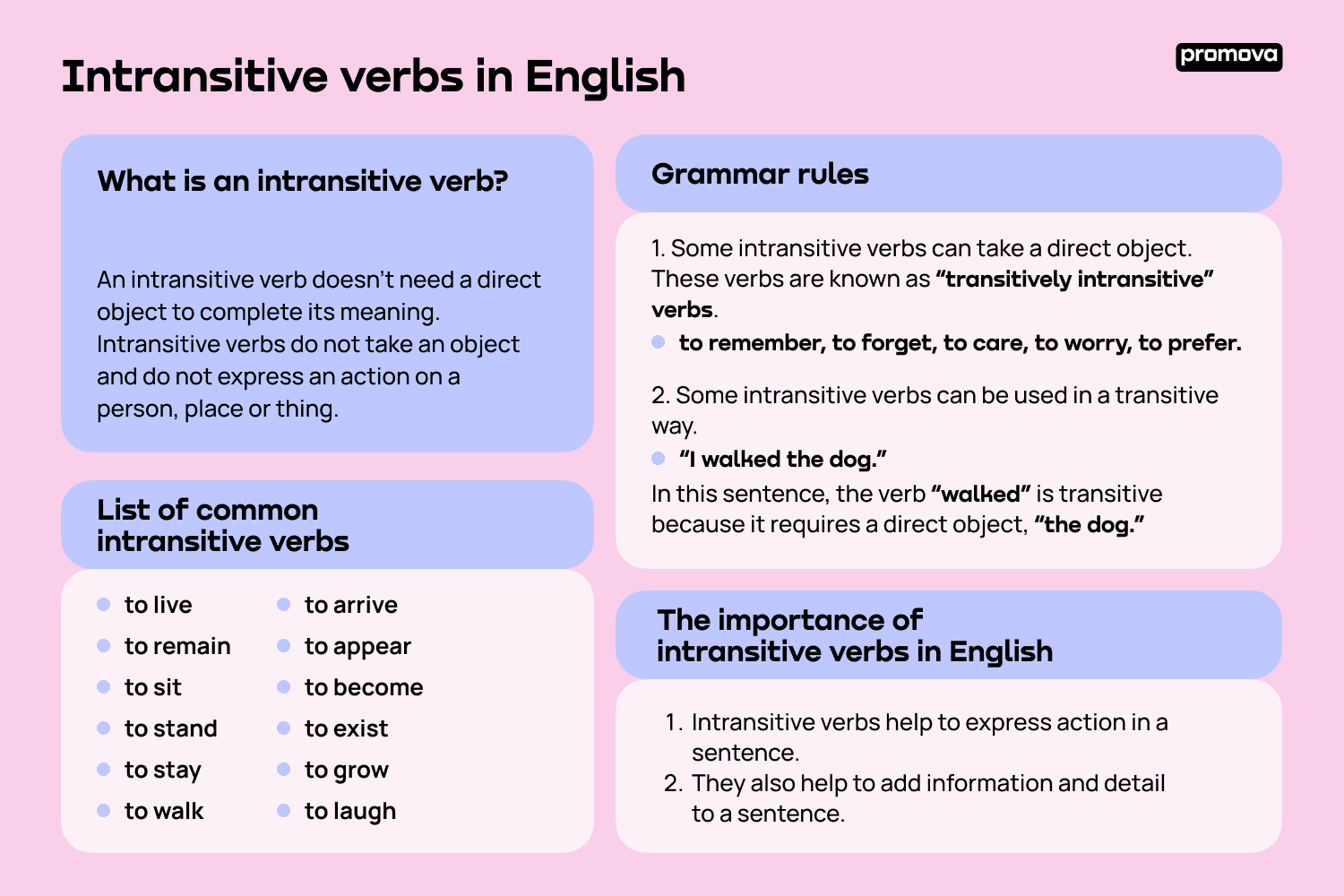Verbs are essential components of a sentence as they express action or state of being. Two common types of verbs are transitive and intransitive verbs. Understanding the difference between these two types of verbs is crucial for constructing grammatically correct sentences.
Transitive verbs are verbs that require a direct object to complete their meaning. In other words, they act upon someone or something. On the other hand, intransitive verbs do not require a direct object to complete their meaning. They express an action that does not transfer to an object.
Transitive and Intransitive Verbs
Transitive verbs are verbs that require a direct object to make sense. For example, in the sentence “She ate a sandwich,” the verb “ate” is transitive because it has a direct object “a sandwich.” The action of eating is transferred to the sandwich. In contrast, intransitive verbs do not require a direct object. For example, in the sentence “He sleeps,” the verb “sleeps” does not have a direct object. The action of sleeping is not transferred to anything or anyone.
It is important to note that some verbs can be both transitive and intransitive depending on how they are used in a sentence. For example, the verb “run” can be transitive when used in a sentence like “She runs a marathon” or intransitive when used in a sentence like “He runs every day.” In the first example, “a marathon” is the direct object, making “run” transitive. In the second example, there is no direct object, making “run” intransitive.
Transitive and intransitive verbs play a crucial role in sentence structure and meaning. Understanding the difference between these two types of verbs can help you construct clear and concise sentences. Whether a verb requires a direct object or not can affect the overall meaning of the sentence and the relationship between the subject and the action.
In conclusion, transitive verbs require a direct object to complete their meaning, while intransitive verbs do not. By recognizing the distinction between transitive and intransitive verbs, you can enhance your writing skills and communicate effectively. So, next time you use a verb in a sentence, consider whether it is transitive or intransitive to ensure clarity and coherence.
